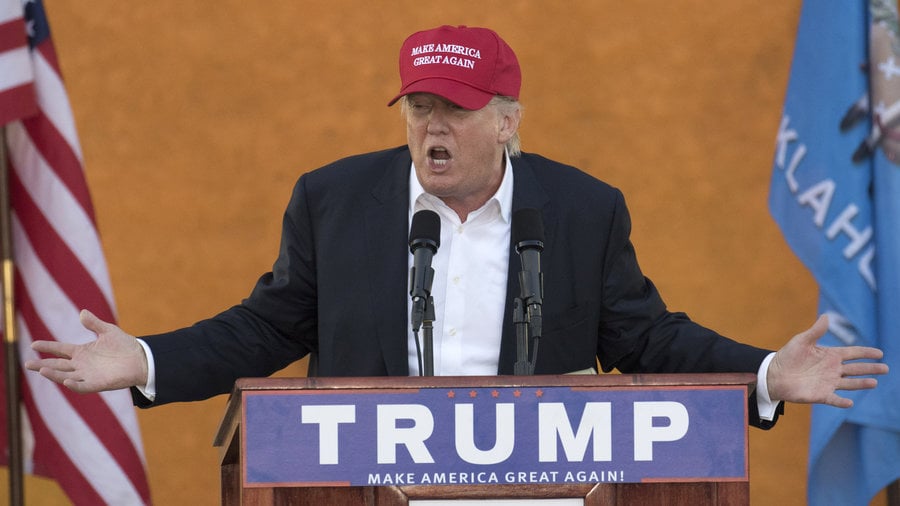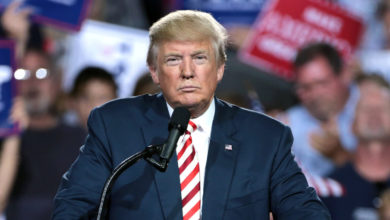William Barr recently underwent confirmation hearings to be Trump’s new Attorney General. While Barr has yet to assume office, he has already had a long career as one of the most cold and calculating architects of mass incarceration as Attorney General under President George H.W. Bush.
William Barr wrote in his 1992 policy proposal “The Case for More Incarceration”: “First, prisons work. Second, we need more of them. Third, inadequate prison space costs money.” Barr did not even bat an eye at the devastating effects of mass incarceration, claiming, “the most common objections to incarceration do not hold up to scrutiny.” Barr is widely known for his ardent support and leadership of the prison industrial complex, and has shown no public remorse for its horrific, decidedly racist effects on working-class people, especially Black and Latino communities.
In the 1990s, Barr was a main proponent of the idea that probation, pre-trial release, and parole were unnecessarily lax and lead to more avoidable crime. These views have been definitively disproven by scientific research. But Barr shows no signs of slowing down his “tough-on-crime” politics that so many others have denounced as a systemic attack on working and poor people founded on the basis of racist lies.
In the last 40 years alone, the number of people in custody has increased by a whopping 500 percent. Since Barr first took office as attorney general in 1991 the number of people incarcerated has more than doubled in size. Many of the people in custody are being held despite never having had a trial because they are unable to pay their bonds. In other words, thousands of people are incarcerated only on the basis of their inability to pay their ransom to the state. A 2017 report by Human Rights Watch found that at minimum 63 percent of people in California jails “have not been sentenced, but are serving time because they cannot afford to pay bail. On the other side of trial, in federal prisons the increase in population is factually not ‘violent offenders,’ but rather ‘lower-rate and lower-level offenders.’”
In Senate pre-confirmation hearings, Democrats questioned Barr almost exclusively about how he would handle Robert Muller’s investigation into unproven allegations of collusion between the Trump campaign and the Russian government, and were pleased when he said he would protect that investigation. The hearings hardly touched upon his record on issues that directly affect the working class, especially mass incarceration. The obsession with the Muller investigation on the part of the Democratic Party was a clear example of their utter disconnect with the concerns of the people they supposedly serve.
However, this missed opportunity to expose Barr’s terrible record should come as no surprise considering the racist “tough on crime” policies of the Clinton presidency, the long history of private prison advocacy on the part of former Vice President Biden, the utterly milquetoast centrism of the Obama years, and Hillary Clinton’s infamous “super predator” comments.
Don’t be fooled: Trump isn’t ending mass incarceration
Barr is expected to support the First Step Act, a Trump-backed law which bundles a few important criminal justice reforms to ease several heinous practices that Barr himself advocated consistently for in the early 1990s. The First Step Act, enacted with strong bipartisan support in Congress, reduces mandatory minimum sentences for some nonviolent, low-level offenders and makes it easier for prisoners to qualify for early release to halfway houses or home confinement.
The First Step Act includes common sense changes to a Kafkaesque brutality of pretrial detention practices and post-release/parole practices. This serves as a necessary release of the pressure valve on the part of the U.S. government which last year faced a major national prison strike that is part of a rising movement against mass incarceration.
However, the First Step Act has major limitations that are not immediately visible to the untrained eye. Primarily, the bill does not combat minimum sentencing, or race and class bias in sentencing in general. Rather, it only applies to federal prisons — a fraction of the overall prison and jail population — and then only to slightly modify “good time” and provide more programs which are currently and regularly filled up with long waiting lists. For scale, consider that even if Trump were to pardon all federal inmates, the prison population would only decline from about 2.1 million to about 1.9 million. The vast majority of prisoners are held by local and state authorities.
There is another hidden feature of the Trump administration’s “reform” efforts as well. In the last few years, the Koch brothers, infamous for using their vast wealth to influence politics, have aggressively pursued criminal justice reform after decades of doing just the opposite. The Koch brothers and like-minded members of the ruling class did not suddenly grow a conscience — the cause of their shift becomes clear when we look into the degree to which they are investing big money into post-release and parole technology.
The Koch brothers recently launched their “Safe Streets and Second Chances” initiative to support technology-driven reentry programs for reducing recidivism. Right-wing investors in criminal justice reform stand to cash in by cornering the markets for supervision technology, which of course former inmates have to pay for each month — usually at about 12 dollars a day. Twelve dollars a day is virtually impossible for most parolees to pay, as they are most often relegated to chronic joblessness because of discrimination on the basis of their record. And just like all other payments the people are supposed to make to the prison industrial complex, what you can not pay in dollars, you will be made to pay in time.
On a political level, from the perspective of a growing section of the ruling class, the strategy of locking millions of people in cages is a clumsy and embarrassing approach to social control made unnecessary by modern technology. Subjecting an even greater segment of the population to strict surveillance and restrictions outside of prison walls is in many ways a more appealing method.
To the extent that the First Step Act provides relief, it is a victory for the people’s movement, and especially for incarcerated people who are fighting back. But the nomination and likely confirmation of a champion of mass incarceration like Barr shows that the war waged by police, the courts and the prisons on poor people and oppressed communities is far from over. And all those politicians in a position to resist him directly betray the people with their passivity and ridiculous fixation on “Russiagate.” The prisons are the crime and their architects are the criminals.





